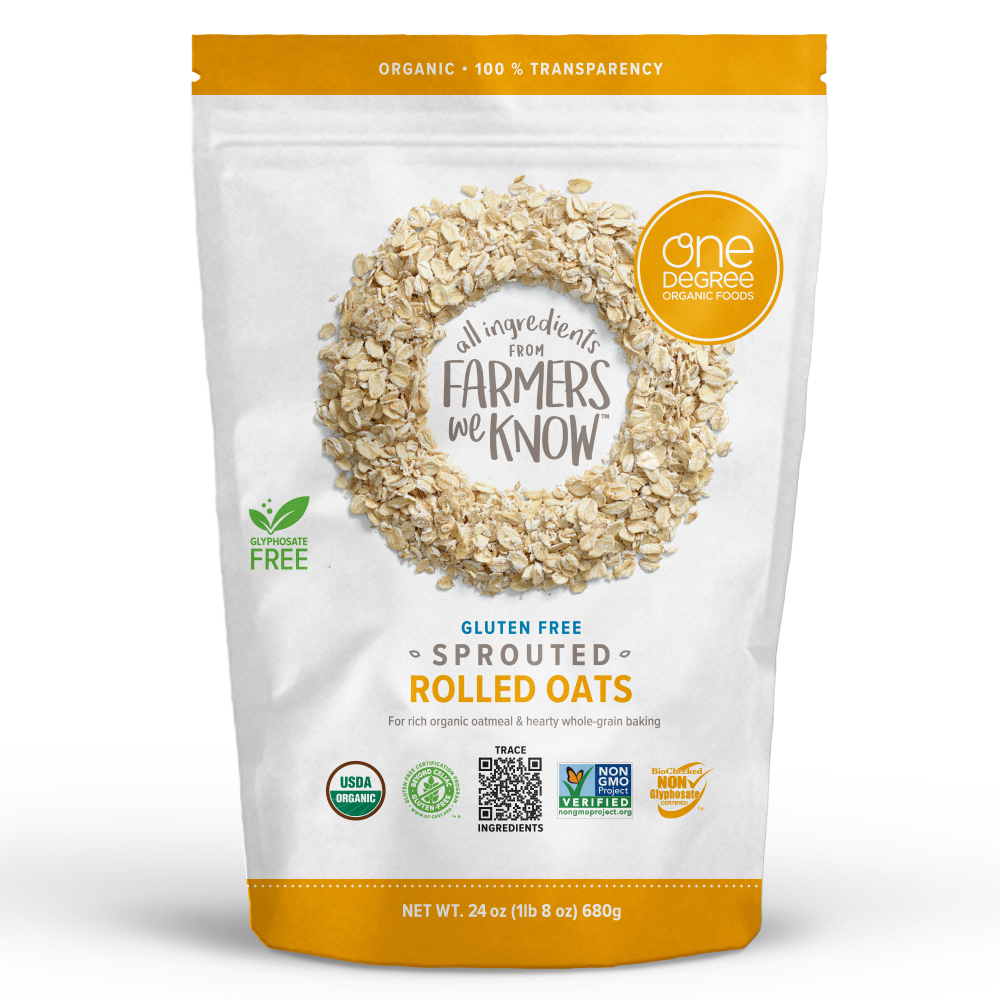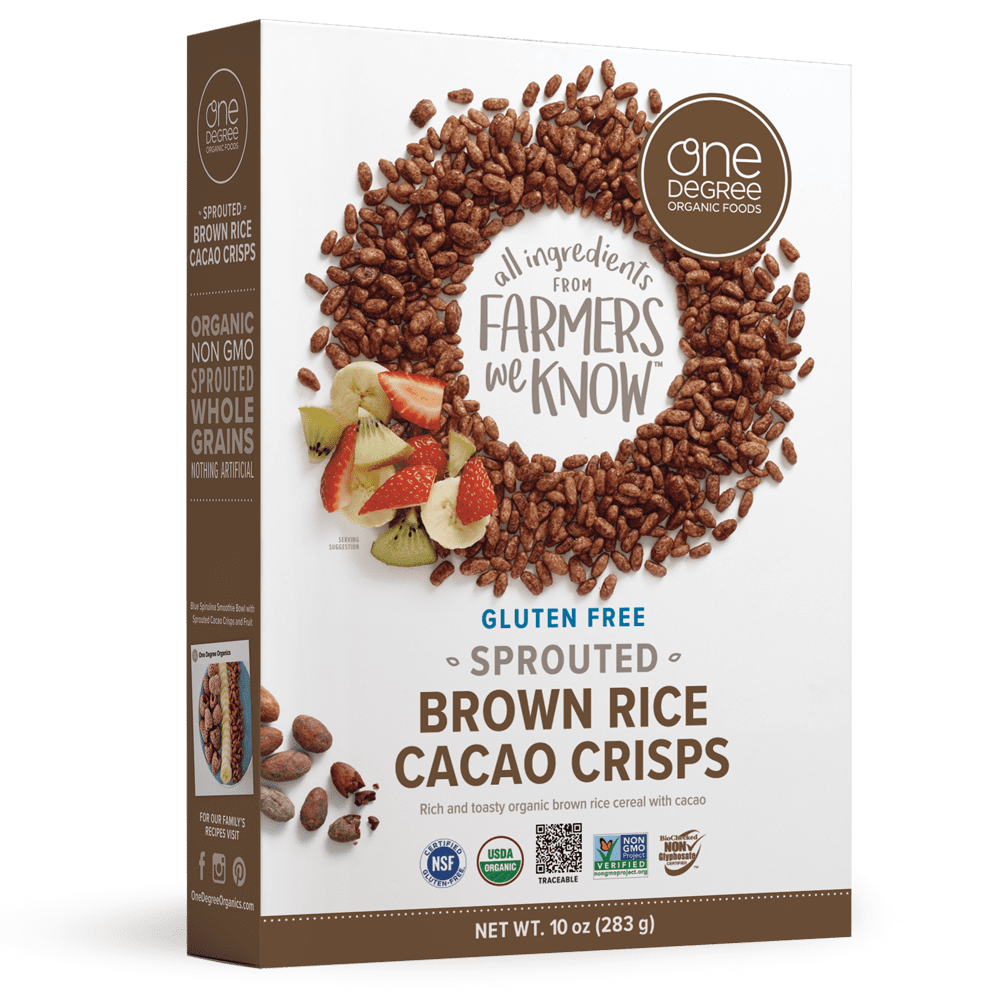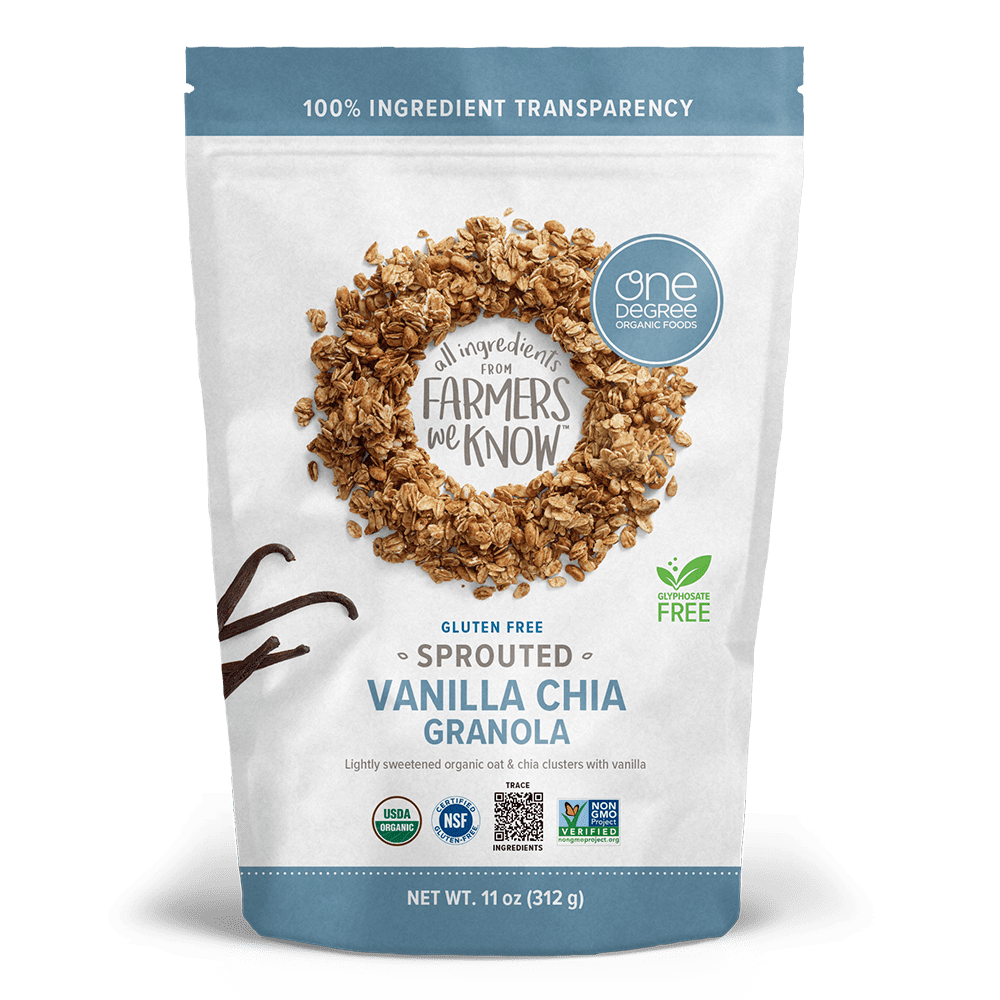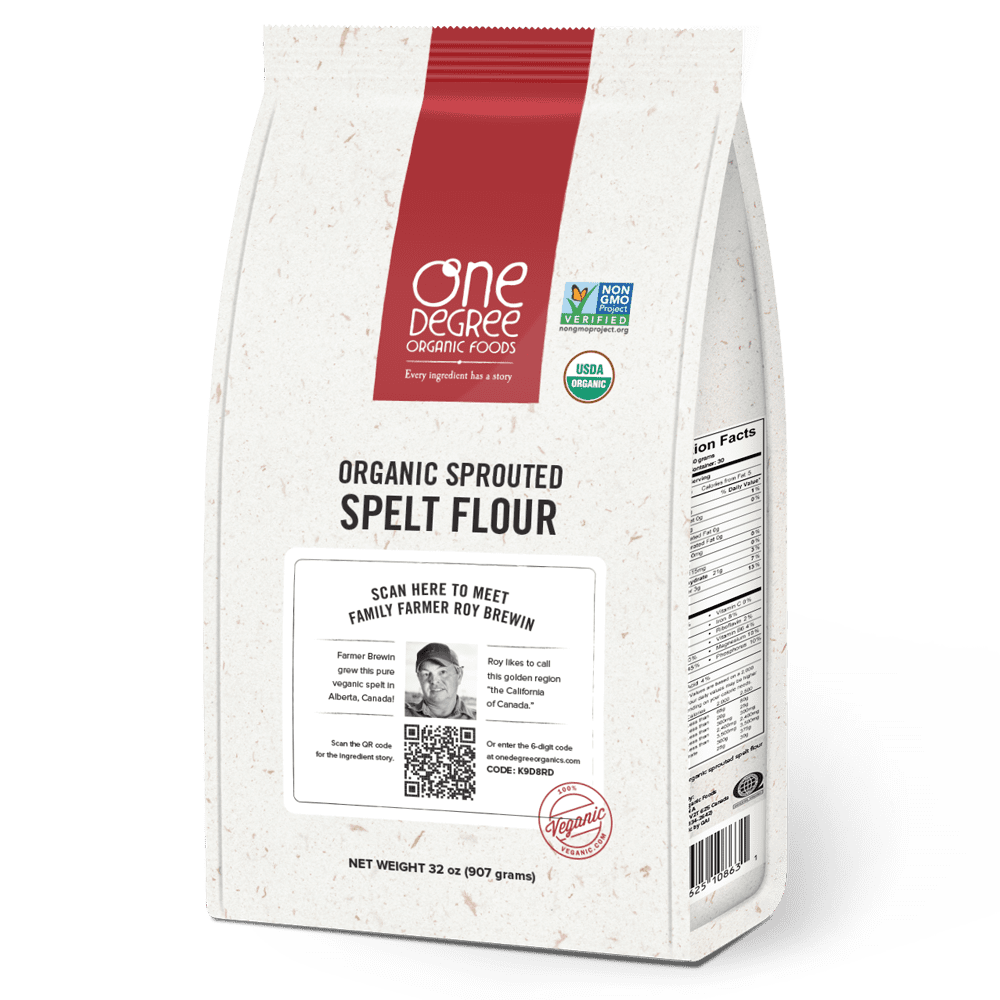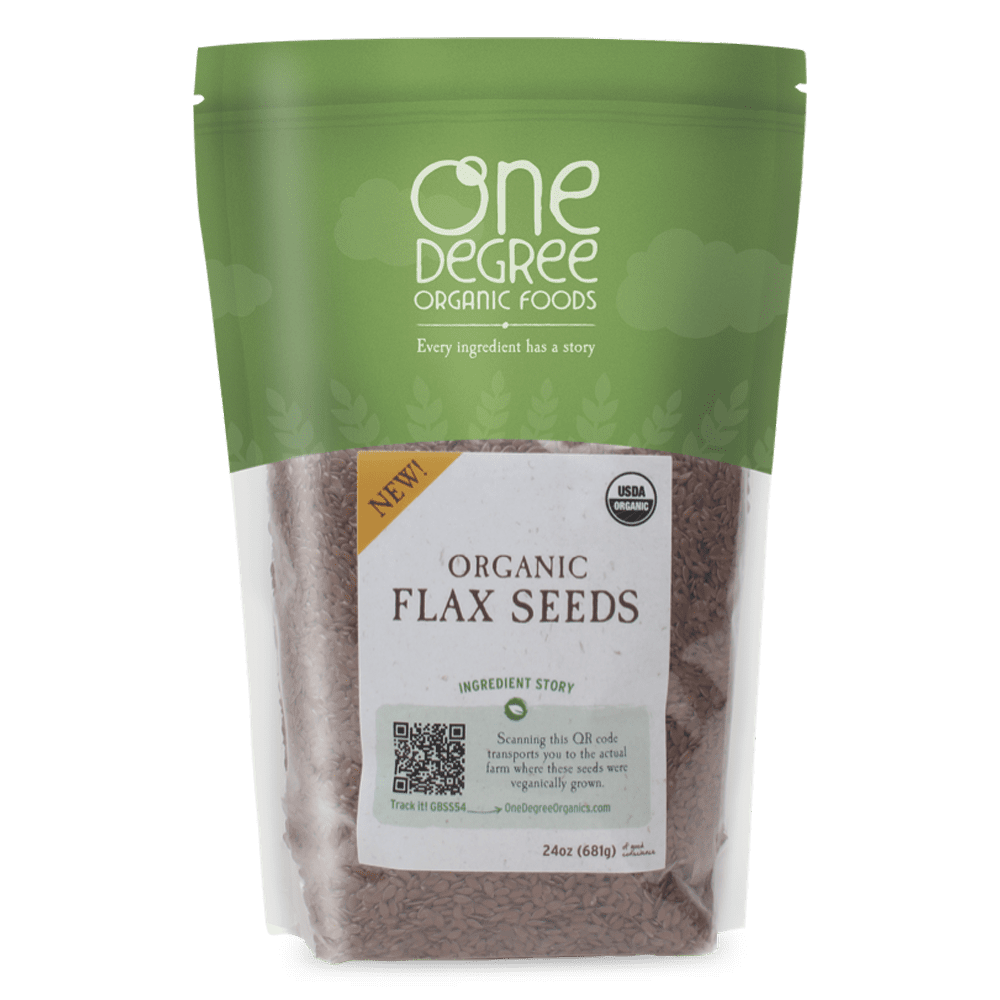Rice
IBIS Rice
The story of how and why we chose IBIS Rice as one of our farm partners is a little bit different. IBIS Rice comes with an inspiring story of environmental preservation, fair trade, and community development. But as proud as we are to share their incredible work, we’re equally excited to share the quest that led us all the way to the northern plains of Cambodia.
Our story begins with a quest to find a rice supply for One Degree that wasn’t just certified organic and farmed in alignment with our values—we wanted to find rice with no measurable inorganic arsenic, too. Inorganic arsenic is a worldwide health concern*, especially for people who depend on groundwater for drinking, or rely on rice as the staple of their diet.
As we scoured the globe and did our research, we learned three key things about the relationship between inorganic arsenic and rice that helped narrow our search.
First, rice absorbs inorganic arsenic 10 times more readily than other grain crops
The 1,000 rice-farming families who partner with IBIS Rice grow only one rice crop a year during the wet season. Their entire crop is rain-fed, either directly or from runoff that comes through the forest and wildlife sanctuary.
To our delight, IBIS Rice doesn’t just meet One Degree’s high standards for veganically grown, dryland farmed rice with no measurable inorganic arsenic. And it’s more than just the perfect rice to use in our products. A not-for-profit initiative, IBIS Rice not only grows a healthy organic product that is consumed worldwide, it is greatly improving the lives of local farmers, conserving endangered animals and protecting precious forests. How rice makes all this happen is an inspiring success story.
The area IBIS Rice is grown is the only place left on Earth where certain species can live and prosper. One such species is Cambodia’s national bird, the Giant Ibis. On the verge of extinction, the Giant Ibis is so large it holds near mythical status for birdwatchers, naturalists and conservationists (hence the name of the project!)
Farmers have worked the land around these forests for generations, eking out a meager existence growing rice, cutting trees from the forest and hunting wildlife. Many are families who took refuge here during the notorious Khmer Rouge regime.
IBIS Rice partners with farmers who are willing to rethink their operations, balancing generations of hereditary know-how with today’s technology and ideas. They agree to use environmentally-friendly farming methods, to follow land-use plans that limit deforestation, and to stop hunting wildlife. In return, IBIS Rice buys their crops above the market price and gives them access to markets that can further maximize their returns.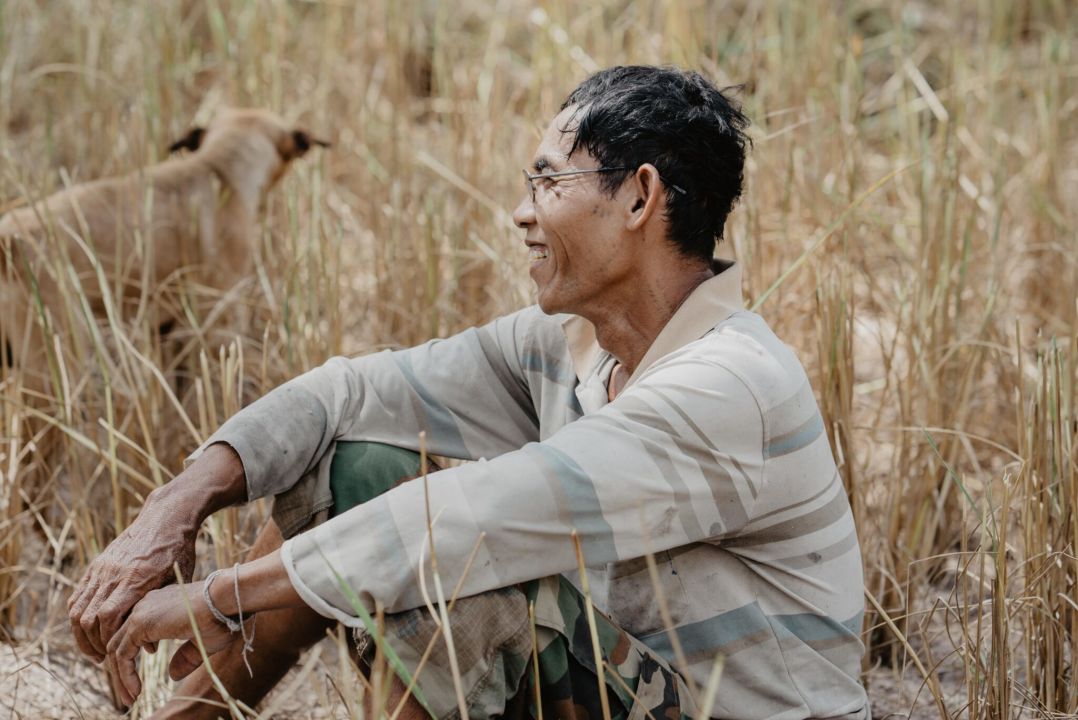
One farmer we met, Nhaem Sipuan, has been toiling the land since 1979. “Life changed for the better once I started farming for IBIS Rice. I’ve never used chemicals, but now our organic certification helps everyone else know that too. I’ve been able to improve my income because the price of organic rice is higher than conventional rice. It has helped me buy a motorbike, a tractor, and have a nicer home for my family.”
Another farmer, Lun Kim, explained how protecting the trees in the rice field is beneficial because when the leaves fall, they act as a compost and help with the soil’s moisture levels.
“Growing rice without chemical fertilizer actually makes the plant more resistant to draught,” adds Lun, “because when the plant is shorter, water can still reach the grain.”
IBIS Rice launched in 2009 and is committed to the continued success of this long-term sustainable solution. “We work with farmers throughout the year on agriculture improvement, on quality improvement, and most importantly on compliance,” says Nicholas Spencer, CEO.
Today, IBIS Rice is protecting over 500,000 hectares of precious forest and wetlands, conserving more than 50 endangered animal species (the Giant Ibis population is slowly recovering!), and increasing the incomes of 1,000 rice-farming families.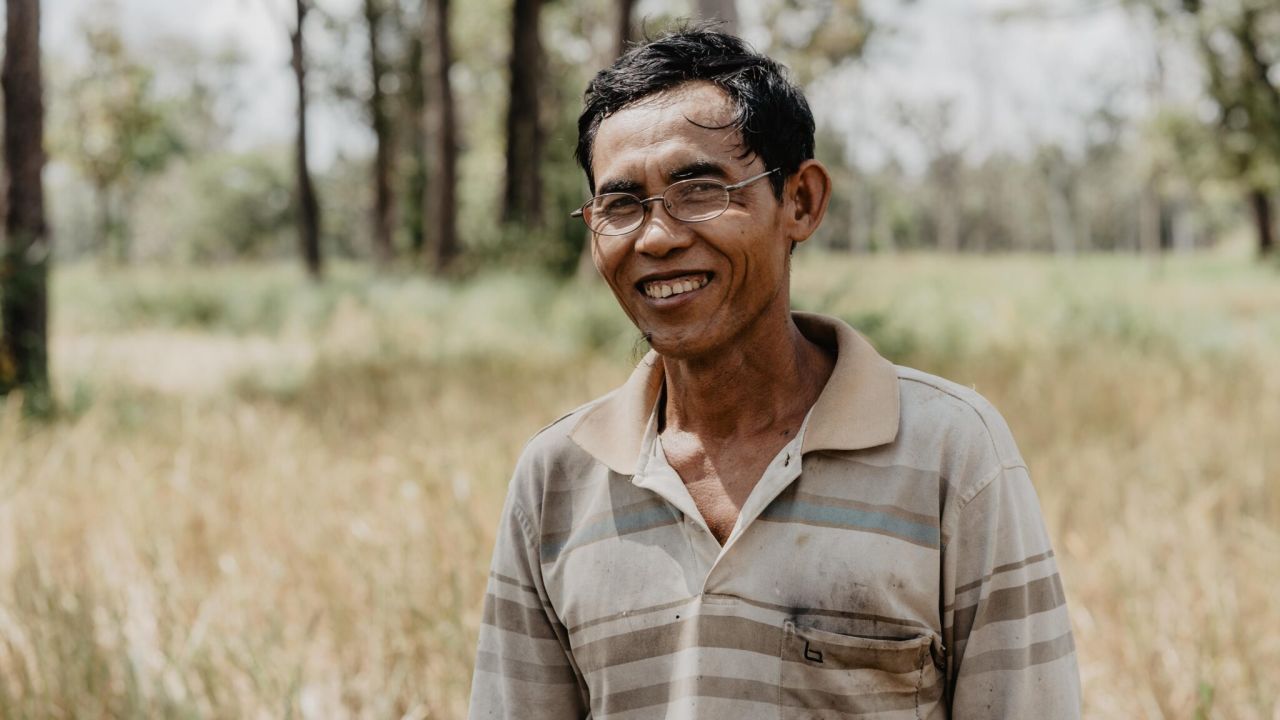
We are immensely proud to support this not-for-profit conservation initiative as it is having a profound and lasting impact.
Find out more about the farmers of IBIS Rice in the short video of our farm trip visit.
* Arsenic comes in multiple inorganic and organic forms. While organic arsenic is not connected to ill-effects
